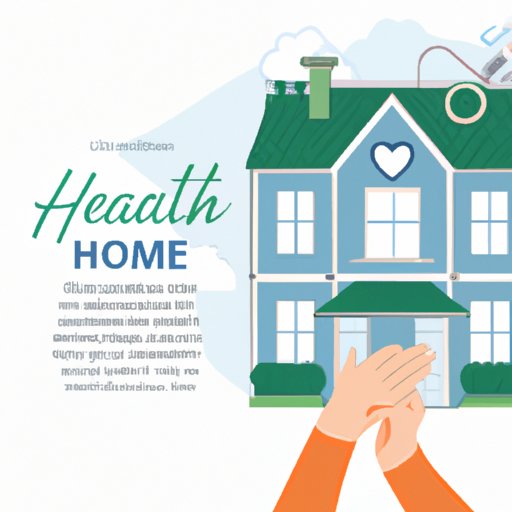
Introduction
Home health care is a type of medical care that allows individuals to receive assistance in the comfort of their own home. This helps patients maintain their independence, while also receiving necessary medical support. Home health care can provide services ranging from skilled nursing care to physical therapy, wound care and medication assistance, among others.
The significance of home health care is clear when we consider the impact it has had on improving the quality of life for patients and families. Home health care services can facilitate faster recoveries, improve the health of individuals with complex medical conditions, and even delay the need for more intensive medical care. Importantly, home health care empowers patients to take control of their health and play an active role in their care plan.
Types of Home Health Care
Home health care services are broad, with a range of options to support patients with varying levels of medical needs. The following are some of the common home health care services:
- Skilled nursing care
- Physical therapy
- Occupational therapy
- Speech therapy
- Wound care
- Infusion therapy
- Medication management
- Personal care services
- Companionship services
- Palliative care services
Home health care providers may have different specialties depending on their training and qualifications, and may include registered nurses, licensed practical nurses, physical therapists, occupational therapists, speech therapists, and home health aides.
How Does Home Health Care Work?
The process of finding and hiring a home health care provider usually involves referrals from a physician or hospital. Patients or their family members may also research and contact providers directly. Once a provider is selected, a care plan is developed in collaboration with the patient, physician, and the provider. This plan defines the services that will be provided, including the frequency of visits and the length of care.
The care itself may vary depending on the patient’s needs, but typically includes monitoring vital signs and administering medications, performing wound care, and providing therapy services as needed. Families and caregivers are trained on how to manage the care plan and update the provider if there are any significant changes in the patient’s condition or when needs change.
Advantages of Home Health Care over Nursing Homes
Compared to nursing homes and other institutionalized care settings, home health care offers several advantages:
- Individualized care: Home health care provides individualized, personalized attention to patients that focuses on their unique needs and goals.
- Comfort of being in a familiar environment: Patients thrive in a familiar setting, with the comforting and reassuring presence of their family and friends.
- Ability to maintain independence: Home health care empowers individuals to stay in control of their healthcare and retain as much independence as possible.
Case Studies of Home Health Care in Action
Personal stories of the benefits of home health care abound. For example, the story of a 70-year-old woman, who suffered from a stroke, but refused to go to a nursing home. Instead, she received home health care services that included physical, occupational, and speech therapies, which helped in her recovery. Thanks to the support and care she received, she was able to continue living independently in her own home.
Another story is that of a 75-year-old man who underwent surgery to remove cancer. After the surgery, he received home health care services that included wound care and managing medications. His wife, who was his primary caregiver, was relieved to have the support of skilled professionals who provided him with the necessary care, allowing her to focus on providing emotional support to him.
Cost of Home Health Care
Home health care services can be costly, and the total costs depend on several factors, including the patient’s needs, insurance coverage, and location. On average, home health care costs less than nursing home care.
Insurance coverage varies depending on individual policies. Medicare, for example, provides coverage for a limited range of home health care services. Private insurance policies may provide more comprehensive coverage, although patients should check with their insurance provider to confirm the extent of coverage available to them.
Conclusion
Home health care is an essential service that can help patients receive medical assistance while remaining in the comfort of their own homes. The benefits are numerous, from the individualized care provided to patients, to the maintenance of independence and the support provided to family members and caregivers.
Despite the cost factor, home health care is an increasingly attractive option that provides peace of mind and can significantly improve the quality of life for patients and families. Whether recovering from a medical condition or seeking ongoing support and assistance, home health care services are an excellent choice for those seeking individualized and compassionate care.





